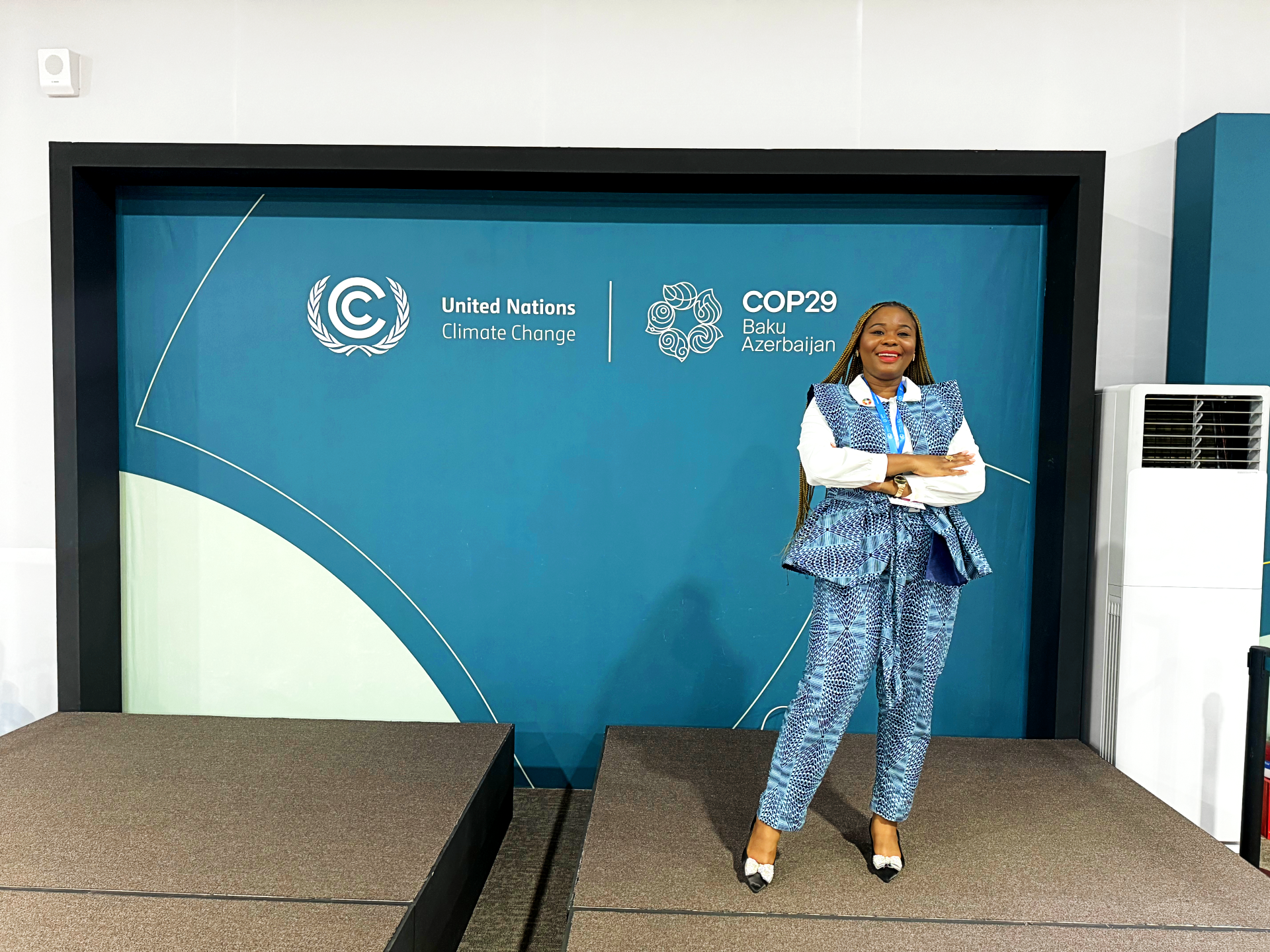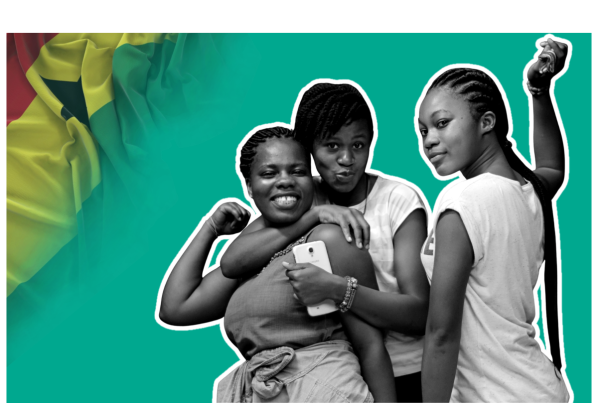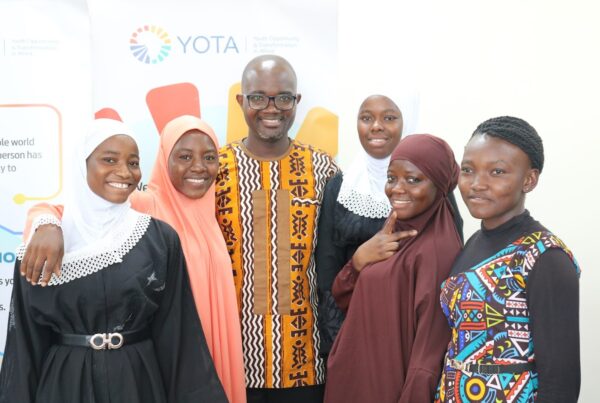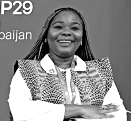
By Lyzianah Emakoua
Youth Climate Change Activist.
Attending the 29th Conference of the Parties (COP29) in Baku, Azerbaijan, was an eye-opening and transformative experience. As an advocate for youth empowerment, gender equality, and climate justice, I had the privilege of engaging with global leaders, activists, and policymakers in critical discussions that will shape the future of our planet. From climate finance to gender-responsive policies, COP29 underscored the urgency of climate action and the need for inclusive, bold leadership.
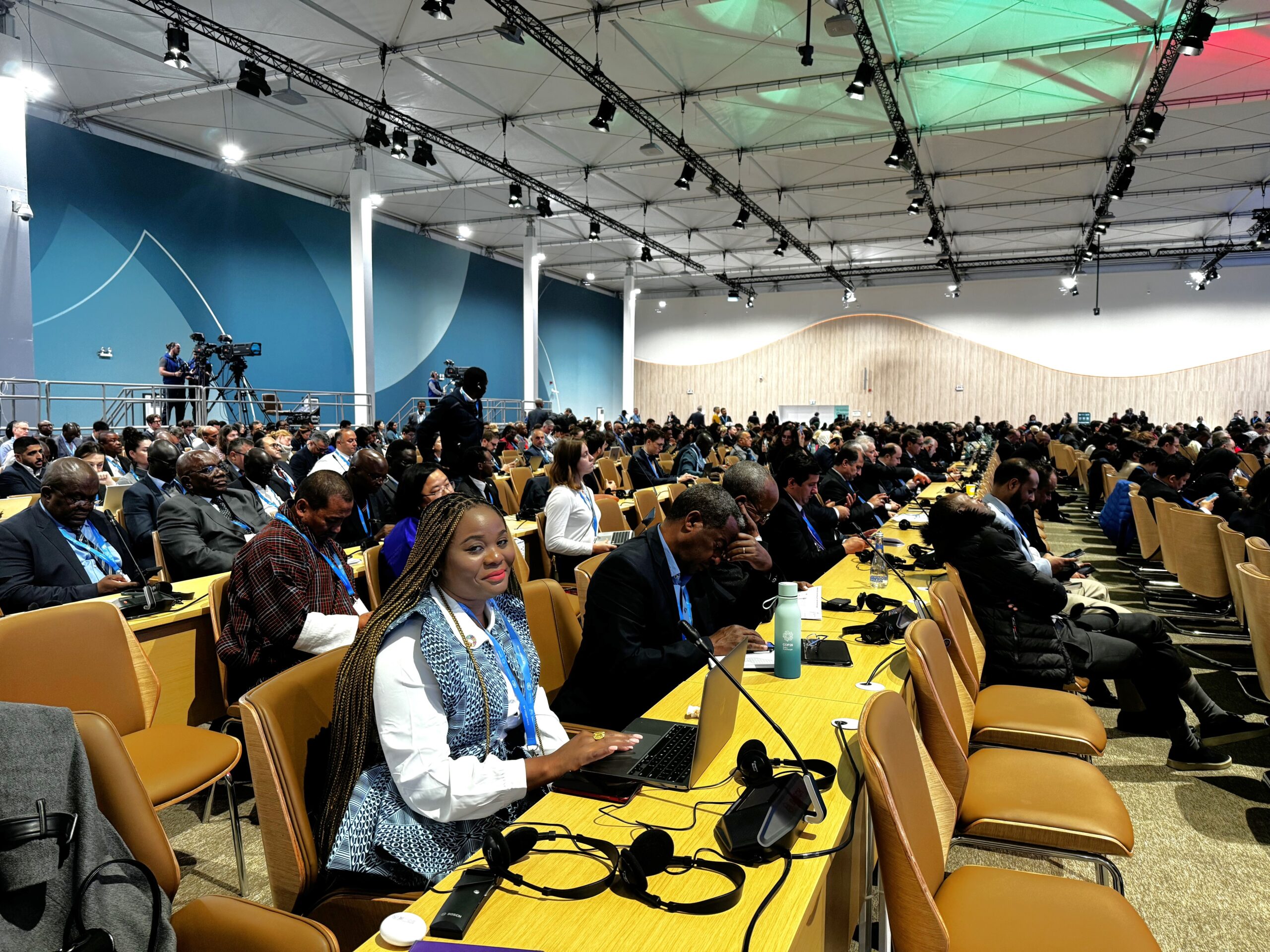
Lyzianah at the COP29 Opening Ceremony
One of the most pressing discussions at COP29 revolved around the need for adaptive and inclusive climate finance. While progress has been made with the operationalization of the Loss and Damage Fund at COP28, the challenge now lies in ensuring that financial resources reach the most vulnerable communities in an adequate, accessible, and transparent manner. Developing nations, particularly in Africa, continue to suffer disproportionately from climate change, and there is a growing demand for climate justice to address these historical inequalities. A key session at the Arctic Pavilion, titled “Strengthening Partnerships between the Arctic Region and Least Developed Countries (LDCs) for Climate Action,” reinforced the need for fair global climate policies. During this discussion, I emphasized the importance of prioritizing vulnerable communities and supporting local, youth-driven climate solutions. The message was clear: climate finance must be equitable and responsive to the realities on the ground.

Lyzianah as a panelist of a discussion at the Arctic Pavilion
One of the most inspiring aspects of COP29 was the growing recognition of youth as key stakeholders in climate negotiations. Young people are no longer just observers; they are actively shaping policy discussions and proposing innovative solutions. Throughout the conference, I participated in multiple youth-led side events at the Children and Youth Pavilion, where we explored actionable strategies to enhance youth participation in decision-making processes. Ensuring that youth voices are not only heard but also translated into tangible policy outcomes remains a crucial challenge. The energy, creativity, and determination of young advocates at COP29 reaffirmed my belief that youth-led climate action is essential to achieving a sustainable future.
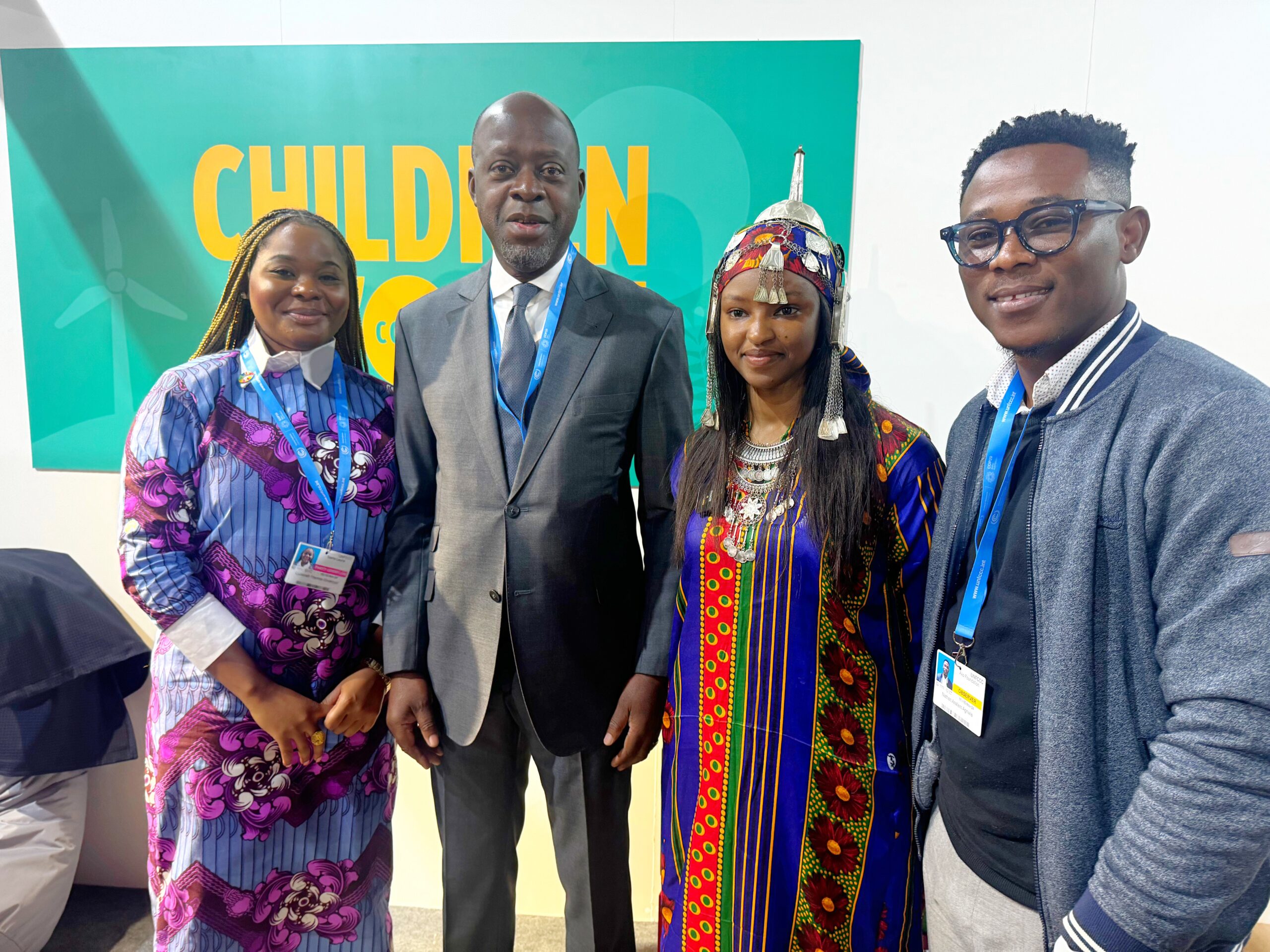
Lyzianah in a photo with President of COP15 (Second from the Left) and other COP29 delegates
Women and girls bear a disproportionate burden of climate change, yet their contributions to climate resilience and adaptation remain underrepresented. Gender mainstreaming emerged as a significant focus at COP29, with discussions centered on the intersection of gender and climate change. During a roundtable discussion at the Multilateral Action Pavilion hosted by the Scottish Government, I highlighted the importance of a participatory, gender-responsive approach to climate action. Policies must empower women as agents of change, particularly marginalized youth, including those with disabilities and pregnant girls. Meaningful progress in climate justice cannot be achieved without addressing gender disparities in policy-making and resource allocation.
As an African climate advocate, I was particularly invested in how the continent positioned itself in global climate discussions. African nations reiterated their demands for fair and equitable climate action, emphasizing the need for technology transfer, capacity-building, and increased investment in sustainable solutions tailored to the continent’s unique challenges. It was particularly inspiring to see African youth leaders at the forefront of these discussions, advocating for a just climate transition. Their presence and leadership underscored the urgency of ensuring that Africa’s voice is not just heard but also acted upon in global climate negotiations.
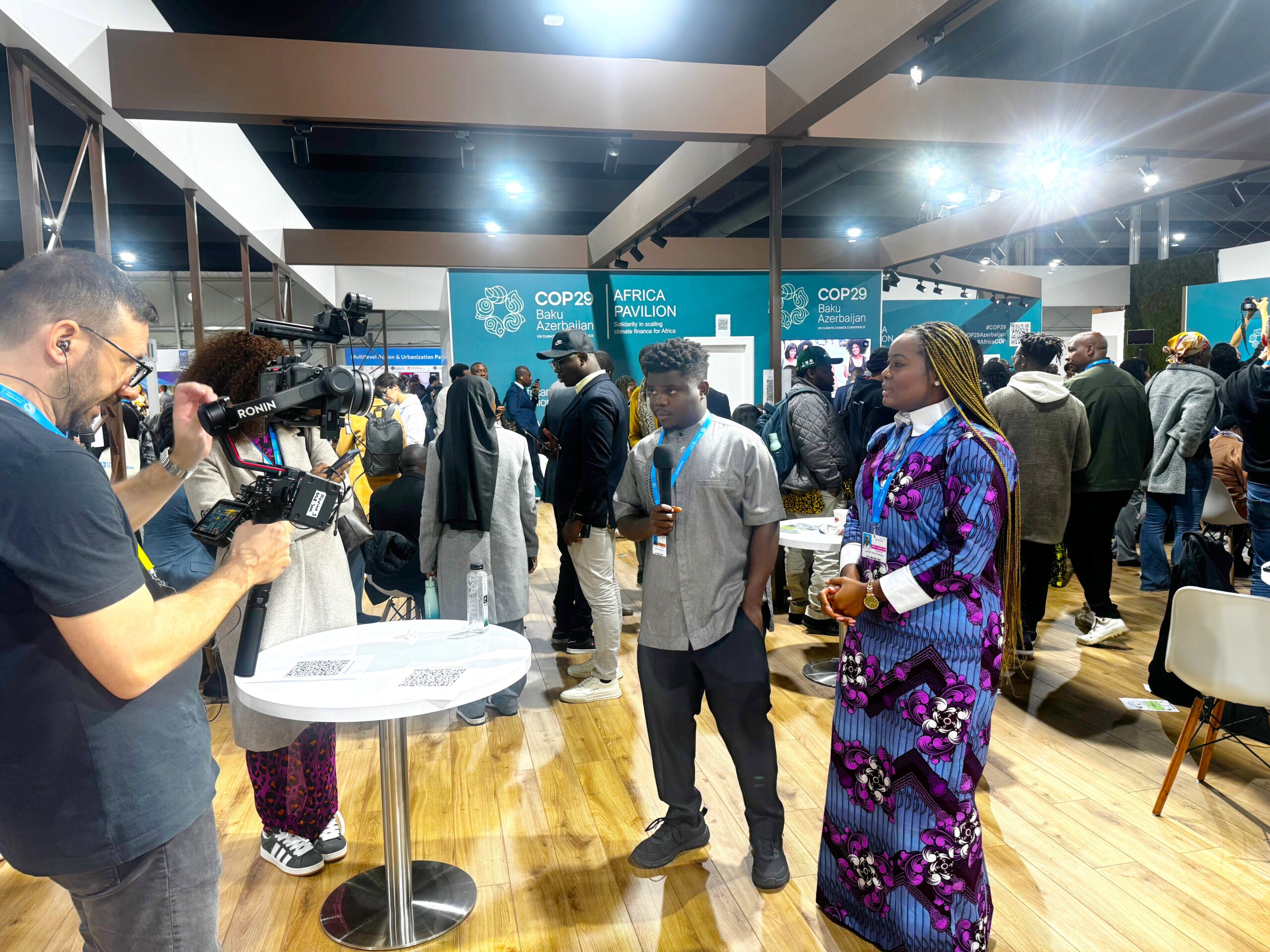
Lyzianah having an interview with Wode Maya
One of my key takeaways from COP29 is that governments alone cannot solve the climate crisis. Meaningful change requires multi-stakeholder collaboration, including civil society organizations, the private sector, and grassroots movements. I had the privilege of networking with like-minded individuals and organizations, exploring opportunities for future collaborations that align with the Africa Agenda 2063 and the Sustainable Development Goals (SDGs). Additionally, I co-organized an inspiring side event titled “Bridging the Intergenerational Gap for Climate Action in the Mano River Union: Best Practices, Prospects, and Challenges” at the Côte d’Ivoire Pavilion. This session highlighted the power of intergenerational collaboration in driving impactful climate solutions across the Mano River Union.

Lyzianah in a group picture with COP29 delegates
While COP29 provided a global platform for dialogue and commitments, the true work begins at the grassroots level. As I return to my advocacy work, I am more determined than ever to bridge the gap between international policies and local realities. Whether through capacity-building programs, policy engagement, or community-driven initiatives, we must ensure that the outcomes of COP29 lead to real, lasting impact for those on the frontlines of the climate crisis.
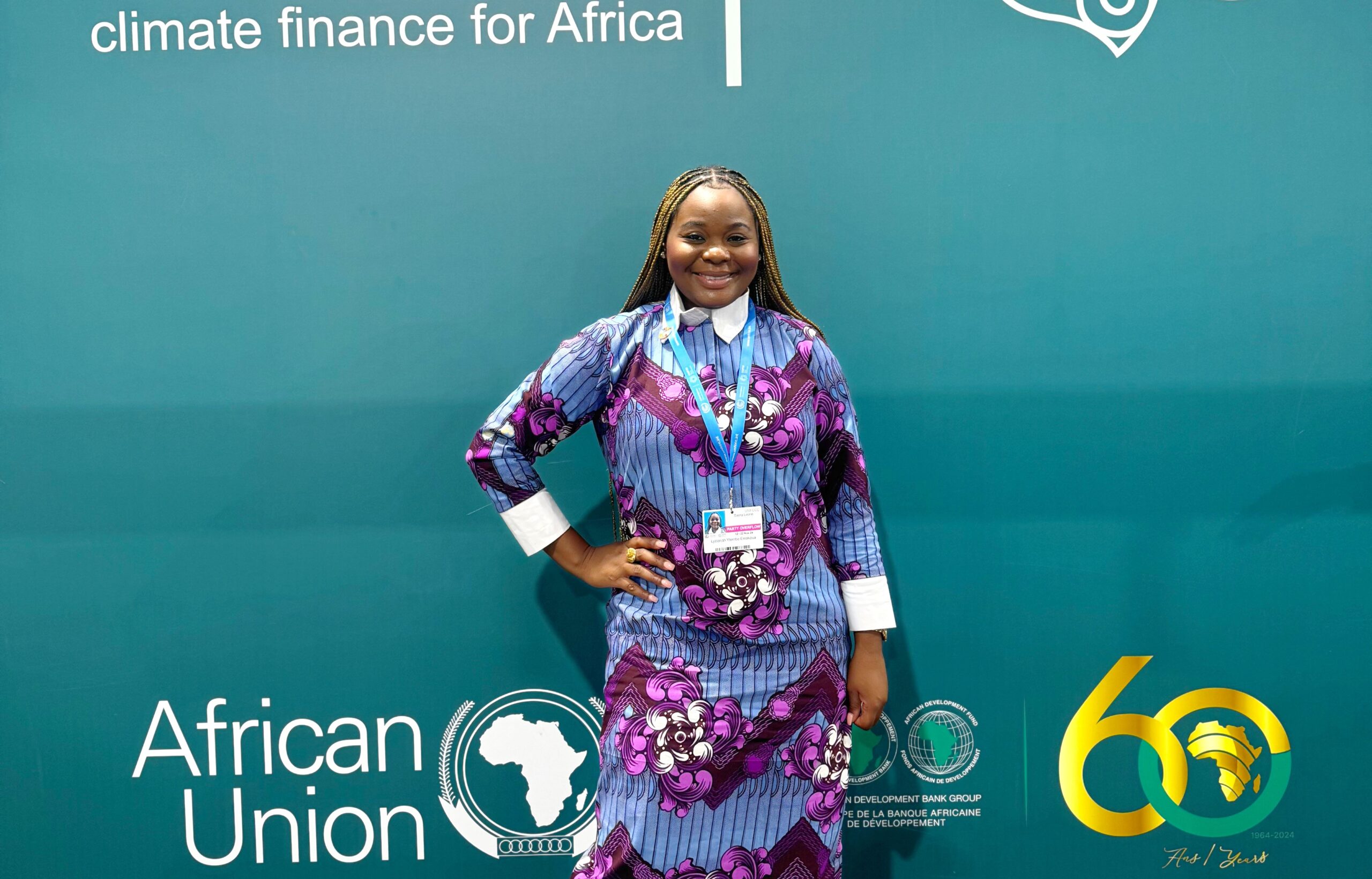
Lyzianah at the African Pavilion
COP29 in Baku was a powerful reminder that the fight against climate change demands collective effort, unwavering commitment, and bold leadership. As I reflect on my experience, I am filled with renewed hope and determination to continue championing climate justice, amplifying youth voices, and advocating for sustainable solutions that leave no one behind. The time for action is now, and together, we can drive the change our planet desperately needs.
Lyzianah Emakoua, a young leader and climate activist, participated in COP29 in Azerbaijan with support from YOTA through the Africa Youth Partnership, funded by the Ford Foundation.

